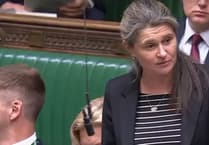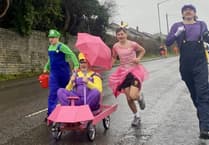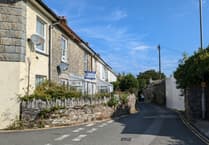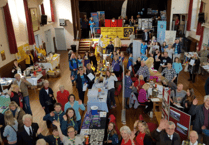HOUSING, transport, and looking after the open spaces in the parish were the top three themes that came out of Calstock’s first “Community Conversation”.
A community conversation – sometimes known as a popular assembly – is aimed at getting as many different people involved and engaged in politics as possible, from the very local right up to the national level.
On a long-term and wider scale, those behind the movement hope that eventually a ‘house of citizens’ will sit alongside elected politicians, with the same powers as the House of Lords to debate and amend proposed laws.
In the shorter term, the Calstock group aims to have people discuss in a non-confrontational way the issues that they feel are most important, so that everyone’s voice is heard, and to feed the viewpoints that emerge into local and county decision-making.
“We had 15 people taking part, which was less than we thought we might get, but these are tentative first steps and it was a very positive beginning – and something worth trying to sustain,” said facilitator Charlotte Reynolds.
Of the people that attended Sunday’s meeting, all say they’ll come again and some have volunteered to deliver flyers and promote the project.
“We want to work on youth engagement, we didn’t have any young people, which was a bit disappointing,” Charlotte says. “We started out by asking people about the positives, and it was felt that Calstock parish is a very friendly community, a wonderful place, with good transport links.
“It was felt that there’s a good link here between people and the parish and Cornwall councillors, and the work the parish council does was really appreciated.”
Following on from the first event in Calstock, where some of the main topics discussed echoed issues being dealt with recently by the parish council, Charlotte said she hoped the community conversation might become a sort of bridge between residents and local government.
Discussion took place around tables with trained facilitators. With a list made of the group’s eight or nine key topics, all present were asked to vote for their top three priorities. These will form the basis for the next meetings, Charlotte explained.
“The first issue that will go forward in six or eight weeks’ time is the management of our public spaces – things like dog mess, litter, hedges and verges. Transport was next; people felt that we’re pretty well served by trains and buses here, but the conversation was more about how to streamline the amount of delivery vehicles, and relieving the pressure on parking. Car sharing came up in the discussion.
“Housing was the other issue, particularly around access to affordable rented properties.”





Comments
This article has no comments yet. Be the first to leave a comment.